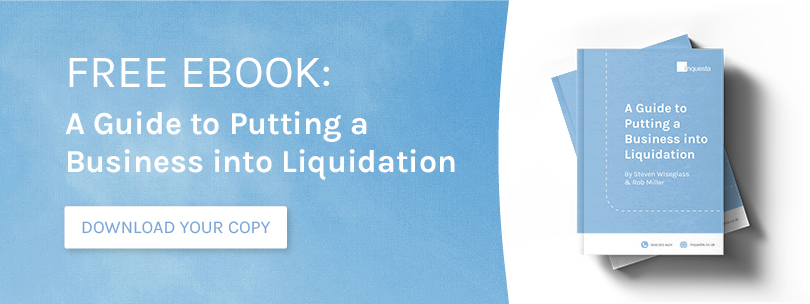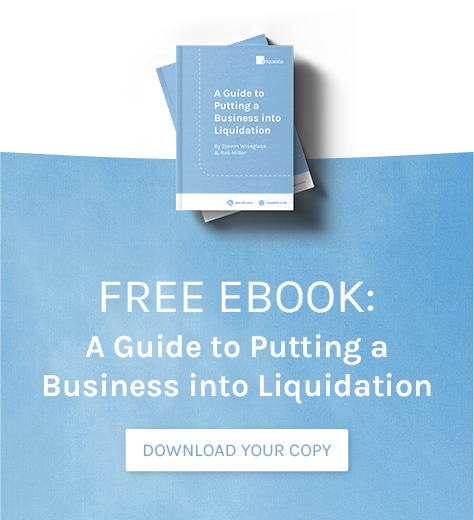Company Voluntary Arrangements (CVAs) and Administration are both business recovery tools that can help a firm in financial difficulty turn around its fortunes. Their goal is to give company directors much-needed breathing space and offer protection against legal action
There is a considerable difference between a CVA and an Administration. Deciding which option is best depends entirely on the individual circumstances of a business, so it is important to seek impartial, specialist advice if you are unsure which way to turn.
What is a Company Voluntary Arrangement (CVA)?
A Company Voluntary Arrangement is a statutory procedure that enables a struggling business to come to an agreement with its creditors to satisfy some, or all, of its debts. If agreed, it offers a moratorium against legal action being taken against the firm and offers a clear path to safety.
Provided the indebted company keeps up with its side of the bargain, a CVA presents an opportunity to wipe the slate clean and start anew. It is extremely flexible, does not need to be ratified in court (unless it is challenged by creditors), and can be applied for without a firm entering into a formal insolvency process. This makes it possible to take action as soon as the warning signs of financial distress become apparent.
For a CVA to be approved, it must be ratified by shareholders (members) of the company and its creditors. The required margins of approval are as follows:
- More than 50% (in terms of number) of members
- More than 75% (in terms of debt value) of shareholders
If these thresholds are reached, all members and creditors will be bound to the CVA — whether they agreed to it or not.
What is Administration of a Company?
When a company enters into administration, it has entered into a legal process with the aim of achieving one of the statutory objectives of an administration, one of which may be to rescue a viable business as an ongoing concern.
It involves a licensed insolvency practitioner, acting in the role of administrator, coming in and sees a statutory moratorium put in place that acts as a breathing space whilst restructuring plans are prepared. This means that the firm will no longer face the prospect of receiving a winding up petition.
The administrator will then take control of the company, with the aim of meeting one of the three statutory objectives set out in the Insolvency Act. If the company cannot be saved, the administrator will look to achieve a better return to creditors than if the company were wound up. Alternatively, the process can be used to distribute proceeds to secured or preferential creditors if the first two objectives cannot be met.
The Difference Between Administration and CVA
There is actually a lot of difference between a CVA and administration. From who remains in control of the firm and how contracts and employees are handled, to whether an investigation is needed and potential tax implications, there is a lot of information to unpack. If you are unsure which is best, seek specialist guidance immediately.
Here are the main differences between a CVA and administration:
Solvency
As mentioned earlier, a business does not need to be insolvent to apply for CVA. If a director becomes aware that their firm is in financial difficulty, they can apply for a CVA before the problem gets too big to manage.

When it comes to administration, this option is only available to companies that are no longer solvent. Because these firms are already in great financial trouble, turning around their fortunes may well be a much bigger task.
Survival
Provided an indebted business stays within the parameters of a CVA, there is a very good chance that it will live to fight another day. If it doesn’t, directors will soon be staring down the barrel of company liquidation. With administration, however, it is common for the process to result in the sale of assets, or the business itself, if the situation is deemed to be unsalvageable.
Control
During a CVA, the company directors remain in complete control of the business at all times. This is not the case with an administration, where a licensed insolvency practitioner will take over and act in place of the company’s directors.
A CVA can be incredibly useful in more specialised sectors, where only those who operate in the industry 24/7 can truly understand its intricacies. This is because it gives them the opportunity to trade their way out of trouble.
When it comes to administration, the insolvency practitioner will ultimately decide what happens to the company. Whilst an administrator may try to involve directors in the decision making process, they may well have little input in the final outcome.
Trading
Another difference between a CVA and Administration comes in whether a business can operate freely. One of the main appeals of a CVA is that it allows a firm to continue trading without having too much impact on the day-to-day operations. While this is still technically possible with administration, an insolvency practitioner is unlikely to permit a struggling business to carry on trading — unless it is absolutely certain that creditors will receive a greater benefit if the firm’s doors stay open.

Tax Implications
CVAs make it possible for company directors to use the firm’s previous years’ tax losses to offset its future tax liabilities. In contrast, administration immediately begins a new tax period for the business, which means no losses can be brought forward.
Director Investigations
Because a CVA is only granted to companies that are deemed viable, there is no need for an investigation into the directors’ conduct. The same cannot be said for administration, as an insolvency practitioner has an obligation to see how the struggling firm was managed in the run-up to the administration.
How Inquesta Can Help with CVAs and Offer Company Administration Advice
Now that you understand the difference between CVA and administration, do you know which method would benefit you the most? If not, there is no need to worry. This is where Inquesta can help.
As a specialist business recovery firm, we will carry out a thorough review of your company and recommend the ideal solution for your individual circumstances. We can also assist with the entire process, so you can be totally confident you are in safe hands.
Unlike some companies who will simply force you down one route, we aim to put the best interests of our client at the forefront of everything we do. We keep all options on the table for as long as possible. No hidden agenda, just an unbeatable level of service.
You can also contact us as soon as you notice the first warning signs of financial difficulty, as we can assist with providing an independent opinion on solvency and assist with a whole host of business recovery mechanisms. Should rescue not be possible, we are also a licensed and specialist insolvency practitioner.
To find out more about our company insolvency and recovery services, or get more information about how we can help you, contact a member of our team today or request a free consultation.




